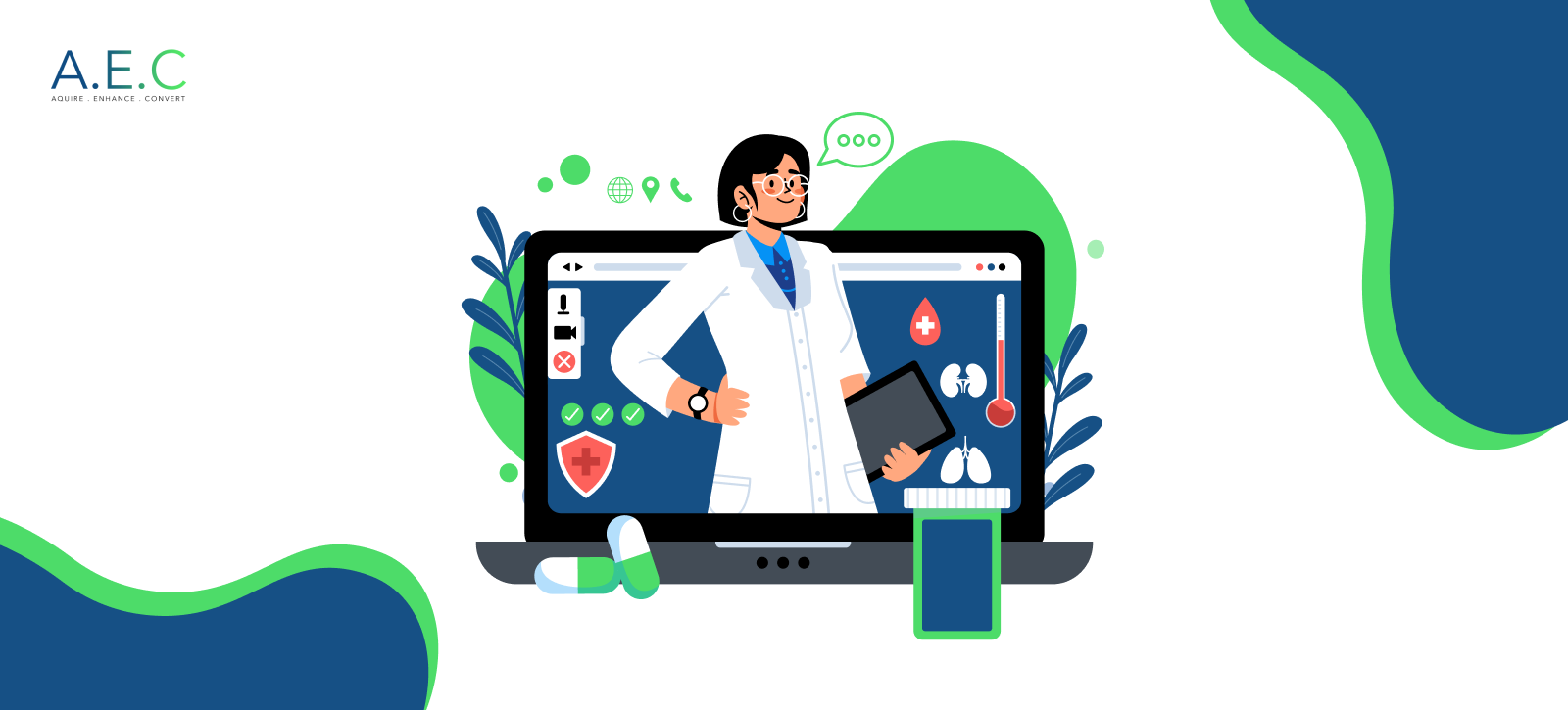The healthcare industry is able to dominate the internet because of its capability to reach people. Believe it or not, marketing is what makes it possible. Marketing isn’t easy though, but that’s what makes it fun. It does come with its challenges and one of the biggest is being ethical. With this article, professionals and organisations will learn how to find success in this field by sussing out the do’s and don’ts.
Building Blocks of Ethical Healthcare Marketing
Before you start healthcare marketing, let’s talk about ethics for a bit. The only thing that matters in this industry is patient privacy and making sure you’re accurate about your services. No matter what kind of campaign you decide to run, keeping your values close is important.
The Dos of Healthcare Marketing
1. Teach and Inspire Your Viewers
Teaching people about health, its treatments, and preventative measures can go a long way. You’ll build trust, and your audience will see you as someone who knows their stuff.
2. Focus on Local SEO
Getting your website to show up in local search results isn’t hard. You only need three things. First, claim your Google My Business listing. Second, get some good reviews from happy patients. Third, make sure all of your contact information matches everywhere on the web.
3. Using Social Media Responsibly
People like to learn new things and feel connected with those who post things for them, like healthcare tips and updates. But remember, there’s a line you can cross by sharing too much. Sensitive information shouldn’t be online, ever.
4. Unlock the Potential of Mobile Optimization
It’s important to double-check if your website is mobile-friendly. Phones and tablets need an easy interface so you can hold their attention. Since they’ll most likely be used for research about health care, it’ll be even harder.
5.Using Content Marketing’s Strong Side
There are many things that can be powerful, but when it comes to content marketing, it’s the compelling ones. Blogs, articles, videos, and infographics about healthcare topics are just a few examples. Not only does this kind of content teach people new things, but it also displays your authority on the subject and makes you seem more reliable.
6. Engage in the Community
When you’re present at events, health fairs, and workshops, people are able to get a glimpse of who you are. Doing this is one of the best ways to build trust because it shows that you’re not just a face behind a desk or an email. You’ll also gain knowledge about what your target audience wants when it comes to healthcare.
7. Invest in a user-friendly website design.
When it comes to your site, a bad experience can be caused by the smallest things. You never want someone to leave your site because they were confused or couldn’t find something. It’s a make-or-break scenario for the visitor’s experience. An easy navigation design is what keeps them infatuated with your website and makes them stay.
| Achieve More with Our Health Marketing Strategies! |
8. Using video marketing to your advantage
Create healthcare videos that are actually helpful and that people would want to see. One of the crazy things about videos is that they’re easy to share and can be explained in a way that sticks.
9. The Importance of Transparency
Building a strong relationship is hard when someone isn’t open with you. People won’t trust you if you don’t share necessary information like services, costs, and treatment procedures. This is only right because they should know exactly what they’re getting into when choosing you as a provider.
10. Focus on the patient in all content
Always put the patient first in all the information given. Prioritise their needs and concerns to show them that you really care about their health.
11. Making Strong Testimonials
It’s true that patient testimonials can be powerful, but only if they’re being honest and covering a range of experiences. When you just cherry-pick the positive ones, it ruins the credibility of it all.
12. Design and Optimise Your Website
When a potential client visits your website, you know they’re going to judge it. So don’t give them any reason to think your business isn’t high-quality enough for their money. Spend the resources to create a clean and easy-to-use design that reflects your company’s values while still giving out valuable information.
The Don’ts of Healthcare Marketing
1. Don’t be Misleading
In the healthcare industry, it’s so easy to not be honest about what you offer. You can stretch the truth a little and probably get away with it, but don’t do it. Because the second somebody finds out that you lied, trust is broken, and they’ll trust you less.
2. Patient Privacy First
We can’t stress this enough. Never share patient information without their consent. Even if you really want to use testimonials or pictures in your advertisements, get permission first.
3. Stop Aggressive Marketing
There’s nothing worse than opening a website only for a pop-up to block everything out and another ad to show up in your email after you close your browser. If there’s one thing people hate more than visits to the dentist, it’s unsolicited marketing techniques like these.
4. Harnessing Feedback
Never underestimate the power of feedback. It’s not everyday that you get to see your business from a customer’s perspective, and these reviews can help propel your growth. Even though it might feel like a gut punch, criticism should be taken as a gift. Use their problems as an opportunity to improve what you offer and strengthen your marketing strategy.
Read Also: Healthcare Marketing Strategies to Boost Patient Engagement
5. Say No to False Promises
It doesn’t matter how good it sounds or how much someone wants it. Don’t ever make false promises. Doing so is the fastest way to get yourself into legal trouble and ruin your reputation while you’re at it.
6. Pay Attention to Analytics
Forgetting analytics could be your downfall. Being successful without taking a look at them is nearly impossible. It’s crucial to see who stopped by and what actions they took on your website. This kind of information allows you to make decisions that can affect the future in a positive way.
7. Good Social Media Etiquette
Social media is a powerful tool, but it also has the power to backfire. You need to keep it professional and avoid any controversy at all costs if you want people to take you seriously. Doing so will keep your brand unharmed.
8. Don’t Use Complex Words
Each industry has its own unique language, but people outside of them generally don’t know what most of it means. I’ve made the mistake plenty of times trying to sound smart. Instead, focus on communicating in a way that they can understand you.
9. Just Say No to Copying
There’s something about people who just love using other people’s work when they want to benefit. But there’s nothing like generating your own ideas. It can be tough, I get it, but it always feels better to use your own creativity rather than taking someone else’s.
| Customised Healthcare Marketing Solutions Await! |
Conclusion
In healthcare marketing, it is essential to be competitive and ethical. This will help a lot, and not only will it look good, but the way to achieve this is by using best practices and being aware of traps.
When you’re in need of guidance in this particular field, AEC Agency is the perfect healthcare marketing agency to choose. Helping you get on top of your healthcare business is our specialty. We’ll lead the way by making it easier for people to find your services online.
All you have to do is reach out if you have any questions or want to discuss how we can make this process smoother for you. Remember that success starts with just one click or phone call, so don’t hesitate.
FAQs
Q1. How can I improve my healthcare website’s SEO?
Improving your healthcare website’s SEO involves keyword optimisation, creating high-quality content, and building backlinks from reputable sources.
Q2. Is it ethical to use patient testimonials in healthcare marketing?
Yes, it’s ethical as long as you obtain the patient’s consent and ensure their privacy is protected. Always follow legal and ethical guidelines when using patient testimonials.
Q3. What social media platforms are best for healthcare marketing?
Platforms like Facebook, Instagram, and LinkedIn are effective for healthcare marketing. Choose platforms based on your target audience and the type of content you want to share.
Q4. How often should I update my healthcare website’s content?
Regularly updating your healthcare website with fresh, relevant content not only benefits SEO but also keeps your audience engaged. Aim for at least weekly updates.
Q5. Can healthcare marketing help with patient education?
Absolutely. Healthcare marketing can be a powerful tool for patient education. By sharing accurate information, you empower patients to make informed decisions about their health.





